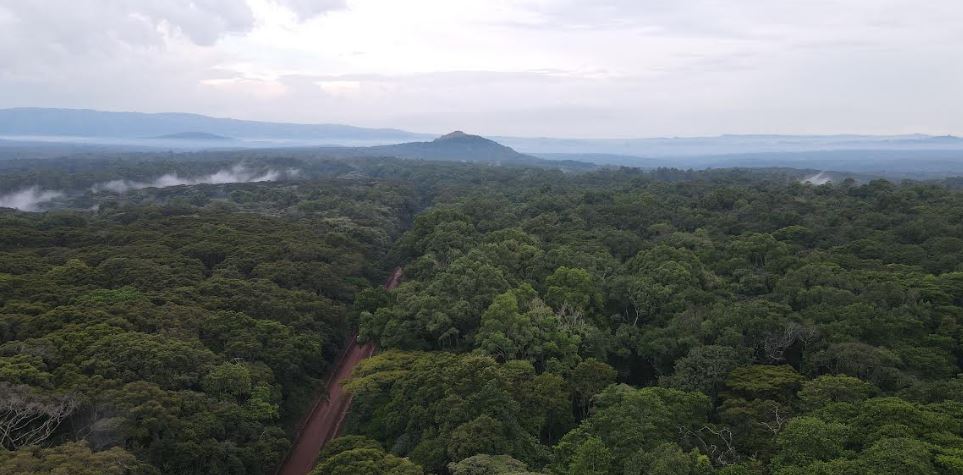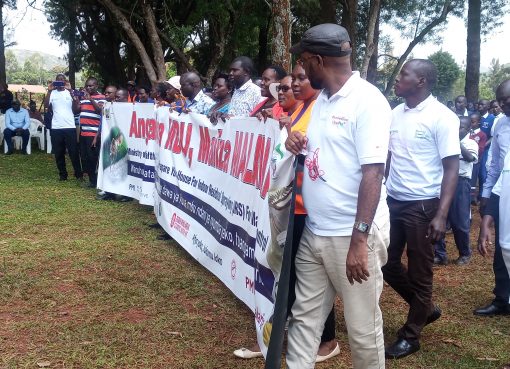Lands, Public Works, Housing, and Urban Development Cabinet Secretary Zachariah Mwangi Njeru has cautioned communities living adjacent to Mau Forest against engaging in illegal forest activities and asked them to be in the first line of defense of the water tower.
He said the state will not condone illegal logging, encroachment, or charcoal burning after his Ministry partially lifted a caveat slapped on land in the fringes of the expansive Mau Forest.

The caveat was imposed in 2015 on various parts of the South Rift due to protracted land disputes and what the government thought was a way to stop illegal land transactions on the fringes of the forest.
Due to the caveat, residents of Kuresoi North, Kuresoi South, Molo, and Njoro sub-counties have not been issued title deeds under the national titling programme due to the caveat imposed by the state.
Addressing a joint press conference with Governor Susan Kihika at the Nakuru County headquarters, Mr. Njeru said various government departments were working jointly to ensure the forest’s cutline was clearly established in order to separate the water catchment and the human settlement areas.
“A clear demarcation of the forest boundary is being conducted first to separate it from the private farms which border it,” he said.
The CS further warned against politicisation of the state’s move to partially lift the caveats.
“As a government, we remain alive to the fact that the conservation of Mau Forest is about the survival of Kenya, Africa, and the world ecosystem. While settling land ownership issues around it, the government’s position is that Mau Forest must be conserved at all costs,” Njeru affirmed.
The areas affected by the caveat include the Kiptagich extension, Ndoinet, Saino, Pararget, Marishoni, and Naswet, among other settlement schemes in Nakuru County.
Last week, President William Ruto directed that the caveat be lifted in the Nakuru-Olenguruone-Amalo, Nakuru-Olenguruone-Cheptuech, Olenguruone-Chepakundi, Olenguruone Kiptagich-Original, and Nakuru-Olenguruone Sections.
Njeru said a long quest for land ownership documents by residents of Nakuru, some of whom have waited for over 40 years, will be a thing of the past as the National Government is working with the county government to fast-track the issuance of title deeds.
Kihika called for a speedy resolution of the boundary dispute between the Nakuru and Narok boundaries to end the perennial conflicts that have been witnessed at the border.
The governor said lifting the caveats would enable landowners in Njoro, Molo, Kuresoi South, and Kuresoi North Sub-Counties to access loans and other facilities.
She indicated that the caveats had condemned land owners into abject poverty, despite having title deeds for the parcels.
The governor also pleaded for the issuance of title deeds to hundreds of families that had not acquired land ownership documents in various parts of the devolved unit.
She further petitioned for the lifting of caveats imposed on parcels of land in Molo and Njoro on the fringes of Mau Forest, as the move has created uncertainty over ownership of land among affected communities.
“They can’t develop the land, and they have lagged behind economically. We’re appealing to President Ruto to intervene and safeguard the dignity of the families,” Kihika said.
She noted that over 200 families from Kiungururia Centre within Eburru Mbaruk Ward have suffered as they have been unable to access financial loans to develop their land since the 1970s due to lack of collateral.
“A title deed is not only proof of ownership but also a catalyst for economic empowerment as it can be used to get loans,” observed the county boss.
She said the issuance of title deeds will offer security of land tenure, which is pivotal in opening up the area for commercial ventures and specifically in real estate.
Nakuru hosts numerous settlement schemes established shortly after independence. Until the late 1990s, a majority of the beneficiaries only held allotment letters.
Prolonged disputes and lack of proper organisational structure have remained a major challenge to the resident’s clamour for the legal documents that have the potential to transform lives.
There are many petitions from residents whose continued stay on their respective parcels without the documents leaves them uncertain.
Among them is a petition from the disputed Ndabibi Farm residents who acquired it through purchase or as a retirement gift from the Agricultural Development Corporation (ADC) in the 1990s.
“There is a growing concern over the lack of security of tenure among residents. We are racing against time to unlock the backlog in title deeds issuance,” Kihika said.
The governor indicated that, due to the many land cases pending in courts, the county government had trained mediators to help resolve the disputes and hasten the issuance of title deeds to residents.
She said most land cases can be solved through alternative dispute resolution mechanisms as opposed to filing court cases. This, he said, will ensure the ongoing titling programme benefits more residents.
Statistics from the courts in the region indicate that at least 50 per cent of cases involve land.
Naivasha, Njoro, Rongai, Gilgil, Bahati, Molo, Kuresoi South, Mai Mahiu, and parts of Mau Narok have experienced disruptions of peace due to disagreements over land.
In Naivasha Sub-County, a protracted controversy over the Agricultural Development Corporation-owned Ndabibi farm to which private individuals lay claim has led to the loss of lives and the destruction of property.
By Anne Mwale




